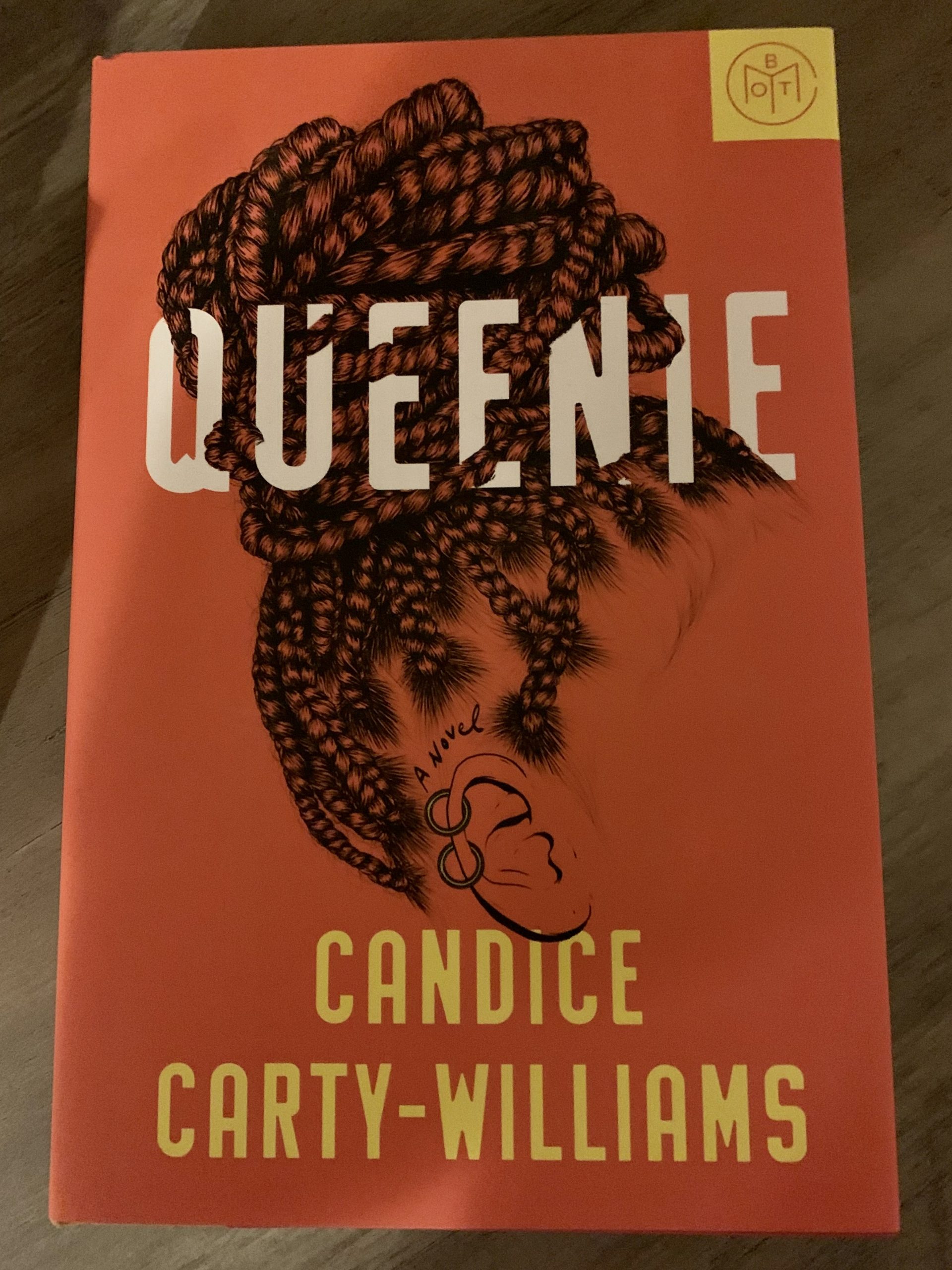In this book club, most of us are mothers. We may or may not be married. We may be younger or older in age. We may even be a father! But for the most part, we are mothers. We are settled into routines of parenting, work, and domesticity.
So reading our book this month might have felt like stepping into another universe.
 Queenie by Candace Carty-Williams centers around a twenty-something Black woman living in London. She is stuck in her life. She is reeling from a breakup with her longterm boyfriend Tom. Her mediocre job at a newspaper leaves her wanting. She has a strained relationship with her mother and both loves and loathes the strictness of her Caribbean grandparents. Her childhood has endowed her with abandonment and self-esteem issues carried over into her adult life. She is a Black woman trying to maintain her culture and identity in a predominantly white society.
Queenie by Candace Carty-Williams centers around a twenty-something Black woman living in London. She is stuck in her life. She is reeling from a breakup with her longterm boyfriend Tom. Her mediocre job at a newspaper leaves her wanting. She has a strained relationship with her mother and both loves and loathes the strictness of her Caribbean grandparents. Her childhood has endowed her with abandonment and self-esteem issues carried over into her adult life. She is a Black woman trying to maintain her culture and identity in a predominantly white society.
Queenie is struggling, in every sense of the word. But while this book may come across as another tale of a woman looking for love and satisfaction from a man/marriage, only to find power and love within herself, this book is more. More raw and honest; more painful and cringeworthy to imagine; more modern and indicative of life today for a young woman just trying to thrive.
Many reviews of this book called her the “Black Bridget Jones,” a description I ascribe to. I am partially biased to this since Helen Fielding’s Bridget Jones’s Diary is one of my favorite books. And there are plenty of parallels between these fictional women.
Both have a core group of friends that are navigating life with them. For Queenie, she has three girlfriends that call themselves “The Corgis” in their WhatsApp chat. Their relationships ebb and flow with love, pain, success, and failure. Even when they may grow angry with one another, these friends are supportive of Queenie and love her for who she is, something she struggles to do throughout the book.
Both characters are looking for love and dating. Queenie is taking a harder approach and making choices that are difficult to read. As Diana Evans for The Guardian stated, “So begins a difficult and painful journey through Queenie’s unfortunate choice of men.” She has terrible sexual experiences and is used and abused by men. She reviews her failed relationship with Tom and must confront the loss and her own culpability in this.
And both characters ultimately find self-acceptance to be of more value than a relationship. But Queenie’s path to this is vastly different than Bridget Jones – and it is what makes her a more relatable character to the reader.
Everything in Queenie’s life comes to a head, and she has a panic attack. This prompts her to start receiving mental health counseling. In her grandmother’s mind, this is a sign of weakness and failure. She chastises Queenie for moving back into her home and moping around, telling her, “If you are sad, you have to try not to be.” This highlights a generational and racial divide on mental health.
But Queenie works past this stigma to work on herself – an action that is later recognized and appreciated by all her family. She discovers her pain over her mother’s marriage to an abusive, manipulative stepfather and works to overcome it. She learns that she must value herself in order for men to value her. She learns that she can be proud of her “blackness” and all the things that make Queenie who she is; she does not have to change who she is to please someone else.
I would love to say that at the end of the book, Queenie has it all figured out. But she doesn’t.
That is what is so refreshing about her and about the book. She is still working on everything – her self-esteem, her relationships, her job – and is still a bit of a mess. But that is how we all are! No matter what age we are or where we are in our life, I think we can all relate to this sentiment.
And while I’m not a young, single, Black, and British/Caribbean woman living in London, I grew to love Queenie and relate to her, too.












